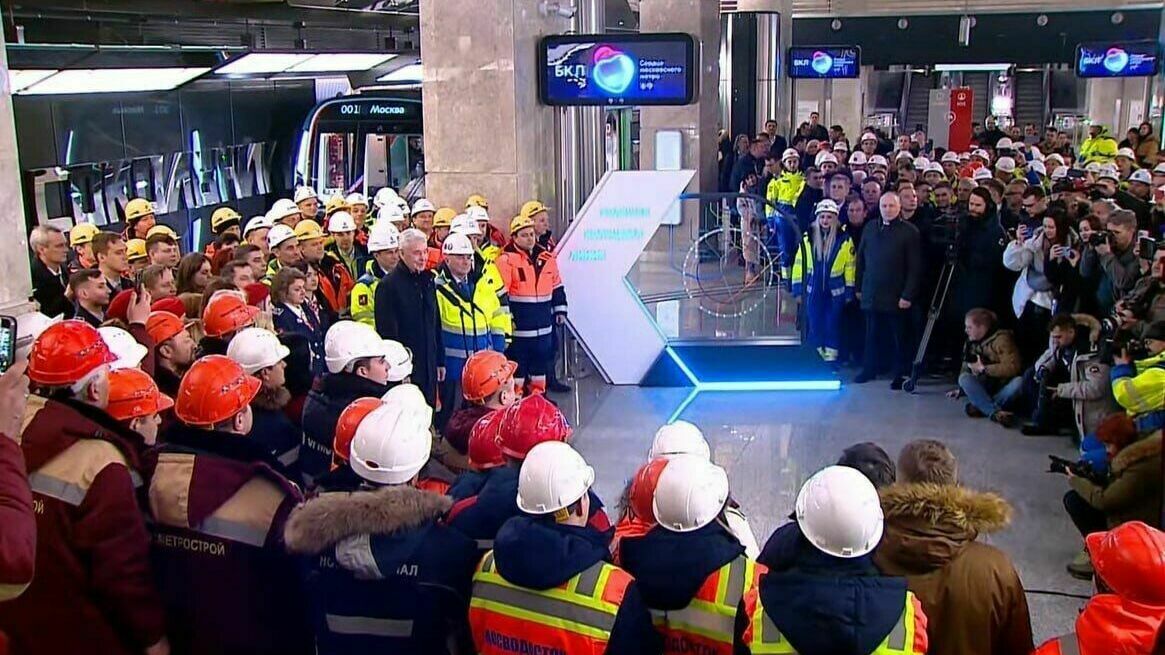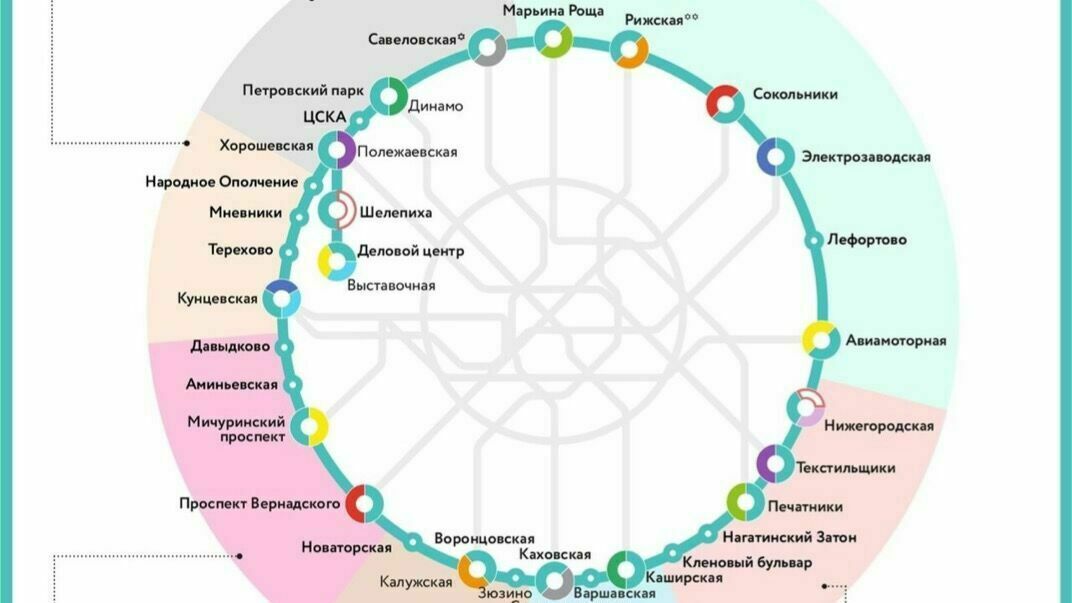Posted 1 марта 2023, 11:19
Published 1 марта 2023, 11:19
Modified 1 марта 2023, 16:54
Updated 1 марта 2023, 16:54

The ring has closed: what did Moscow get with the opening of the Bolshaya Koltsevaya Line
Yekaterina Maximova
On March 1, in Moscow, President Vladimir Putin and Moscow Mayor Sergey Sobyanin inaugurated the Great Ring Line (BCL) of the the metropolitan subway. The opening was scheduled for 13 o'clock. Sobyanin arrived at Sokolniki station a little earlier, later Vladimir Putin joined via videoconference.
The President stressed that the grandiose project was implemented thanks to the persistent work of the Moscow government headed by Sergei Sobyanin. The Head of state also thanked everyone who took part "in this big construction project", which was completed in a short time. And, Putin stressed, the launch of BCL will make the life of the metropolis more convenient and comfortable.
Putin also recalled that BCL has become the largest metro ring, "overtaking our friends in China" (the ring line of the Beijing subway). The President recalled that a visit of the Chinese delegation to Moscow is planned. "We will be happy to show our guests", - Putin promised. He also said: "In general, I want to note the tremendous work that the Moscow authorities have done to develop the transport infrastructure".
Novye Izvestia reminds us of the main facts about the BCL - the longest subway ring in the world. The Moscow BKL is 70 km, 31 stations and three new electric depots.
The ring will connect 34 districts of Moscow. Now passengers will be able to make transfers: at 20 stations of 11 other metro lines; three transfers on the Moscow Central Ring, 13 transfers on the railway line; eight transfers to the Moscow central diameters.
The radial metro lines will be unloaded by 22%, and the ring line - by 25%. Savings on the road for many passengers will be up to 45 minutes a day. You can drive the whole circle in 87 minutes. The new ring improves transport services for 15 million people - residents of Moscow and the Moscow region.


As officially reported stroi.mos.ru over the past ten years, 200 km of metro lines have been built in Moscow (together with the MCC), 11 electric depots and 100 stations have been opened (including 31 stations on the Moscow Central Ring). The average cost of construction of one kilometer of the metro line together with the construction of stations (by the method of shallow laying) it amounts to about 4.5 billion rubles and above. The cost per kilometer of deep laying is 7 billion rubles. In the first case, construction takes from 2 to 3 years, in the second - from 5 to 6 years.
Moscow, whose annual budget traditionally exceeds 3 trillion rubles, can afford such a pace of construction underground.
But St. Petersburg, where the metro has not even been able to loop for 68 years, and the last time a new station was opened in 2018 for the sake of the World Cup, certainly did not dream of such investments.
Doctor of Economics, Head of the Department of Transportation Organization of St. Petersburg State University of Architecture and Civil Engineering Andrey Gorev praised Muscovites and confirms that the Northern Capital cannot catch up with such rates of metro construction. Yes, Gorev notes, there are different finances in the capital, and the approach, and the construction cycle is much shorter.
"In Moscow, the Department of transport development is very different. It is quite powerful centrally. Plus an administrative resource. In general, the development strategy is very correct. In Moscow, they immediately realized that no matter how much the metro is built, it will never be enough, and they took up the railway, which became part of urban passenger transport. They do everything right. In St. Petersburg, we could also solve many problems if the management was built more clearly. Metro development is handled by one committee, urban transport by seven committees - each with its own pieces. Therefore, we still have the situation as it is. There will be no such breakthroughs as in Moscow. And St. Petersburg residents should be envious of the management system rather. If we had the same built-in system, and with such an administrative resource, then we would have done it," said Andrey Gorev.
Recall that the BCL, where the cost of one span was about 5-7 billion rubles, of course, was not built immediately. And today, the last nine stations have become part of the interchange hub: "Rizhskaya", "Sokolniki", "Textile Workers", "Printers", "Nagatinsky Zaton", "Maple Boulevard", "Kashirskaya" and "Varshavskaya", "Maryina Grove".
The first section (opened in 2018) provided for six stations - "Business Center", "Shelepikha", "Khoroshevskaya", "CSKA", "Petrovsky Park", "Savelovskaya". The subway has become closer for residents of such areas as Khoroshevsky, Airport, Timiryazevsky and Savelovsky.
Two years later, Aviamotornaya, Lefortovo and Elektrozavodskaya stations were opened. In 2021, metro builders cut the red ribbon at the stations "People's Militia" and "Mnevniki". And at the end of 2021, Putin and Sobyanin opened 10 more metro stations "tied" to the BCL. These are "Terekhovo", "Kuntsevskaya", "Davydkovo", "Aminevskaya", "Michurinsky Avenue", "Vernadsky Avenue", "Vorontsovskaya", "Innovative" and "Zyuzino" (plus the reconstructed "Kakhovskaya").
Immediately after the opening of the BCL, Sergei Sobyanin promised the day before, preparatory work on the construction of the Biryulevskaya line will begin. The draft layout of its second and third sections has already been approved. The new branch will run from the ZIL station to Biryulyovo East and West. It will improve transport services in several districts of the capital with a population of more than 700 thousand people. It will unload other lines and adjacent roads. The new construction announced by the Moscow mayor is a new 16 km of track and seven stations.